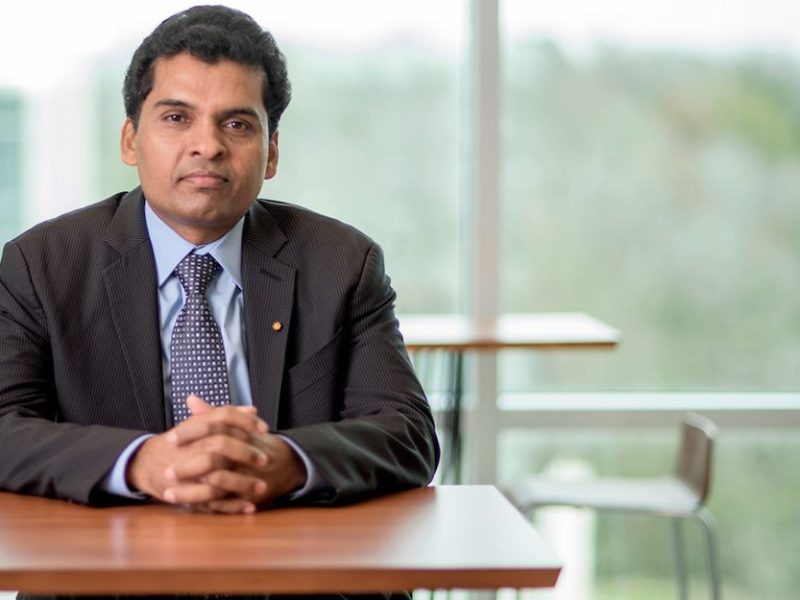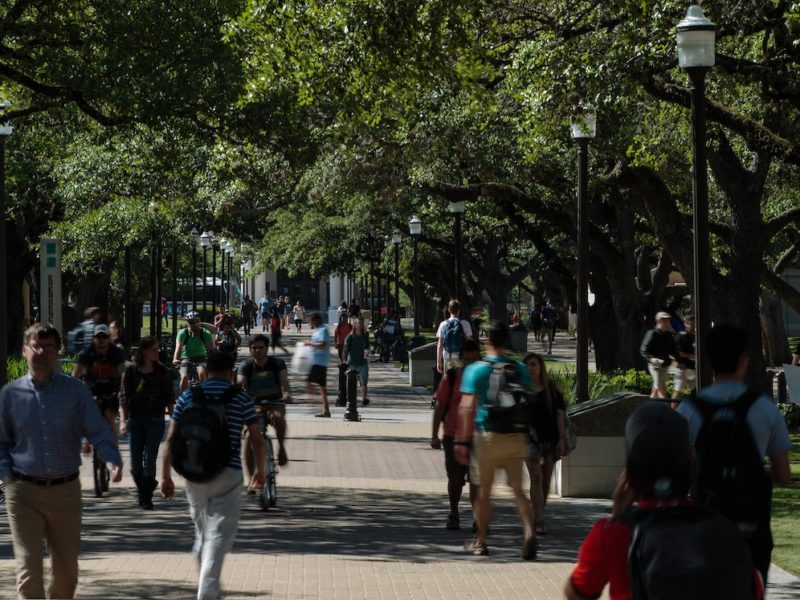William Klemm Is The Memory Medic

Still razor sharp at age 78, Texas A&M University memory expert William Klemm can not only find his car keys every day, but he probably has some good clues to help you find yours.
At an age when many of his colleagues have long since retired, Klemm, a neuroscience professor in the College of Veterinary Medicine & Biomedical Sciences, is not ready for the shuffleboard court just yet. In the last 10 years, he’s written or contributed to eight books (he’s working on three more), authored seven peer-reviewed papers and had research grants totaling more than $7 million from such groups as the National Science Foundation and the National Institutes of Health.
He also blogs for Psychology Today, whose own editors have called many of his posts “must reads,” and has his own blog on improving learning and memory, with posts nearing a half-million reader views.
His most recent book is Memory Power 10, and it gives more than 200 tips about how the average person can improve his or her memory. He also has a new e-book just for students, titled Better Grades, Less Effort.
So what is Klemm’s secret – how can he do things at 78 that many people at age 38 would have trouble accomplishing?
“I try to stay active, both physically and mentally. I think that has a lot to do with it,” Klemm says from his office where he is working on numerous other projects.
“People ask me if it is genetic or somehow hereditary. Both of my parents died at age 76, but I know that I am in much better health than they were. Genes may play some role, but it is up to each person to develop a healthy lifestyle and try to stick with it.”
Klemm says he first “got serious about school work in the seventh grade. From that point on, I got interested in being an efficient learner, which meant that I had to learn how to be better at memorizing. Along the way, I picked up a lot of tips that helped me to be a good student without having to spend so much time at it.”
Klemm says there is no one specific reason that prevents people from having a bad memory, but he does say there are some basic things that can help everyone.
“The first two are to eat right, and get plenty of sleep. Even if you need to take a nap, take one because your body might need it,” he says.
“Also, try not to multi-task if at all possible. Stay mentally active, such as doing word games, crossword puzzles, or plenty of reading, and try to get some aerobic exercise every day. If you like to meditate, good – it’s been proven that meditation and yoga can help memory. When it comes to memorization, don’t memorize by rote – make associations, especially mental images, for what you are trying to remember.
“Also, test your own recall when you get a chance by trying to remember something you have just learned. Stress has been shown to impair memory, so if you can find ways to reduce it, great. And try to believe you can ‘grow young’ again and try to make this a self-fulfilling prophecy.”
And tips for finding those car keys?
“Car keys should only be in your car, your pocket or purse or the same place every day in your house, and that also applies to eyeglasses, purses, hats, etc.,” Klemm says. “Life is a lot simpler when you have a place for everything – habit relieves the memory.”





